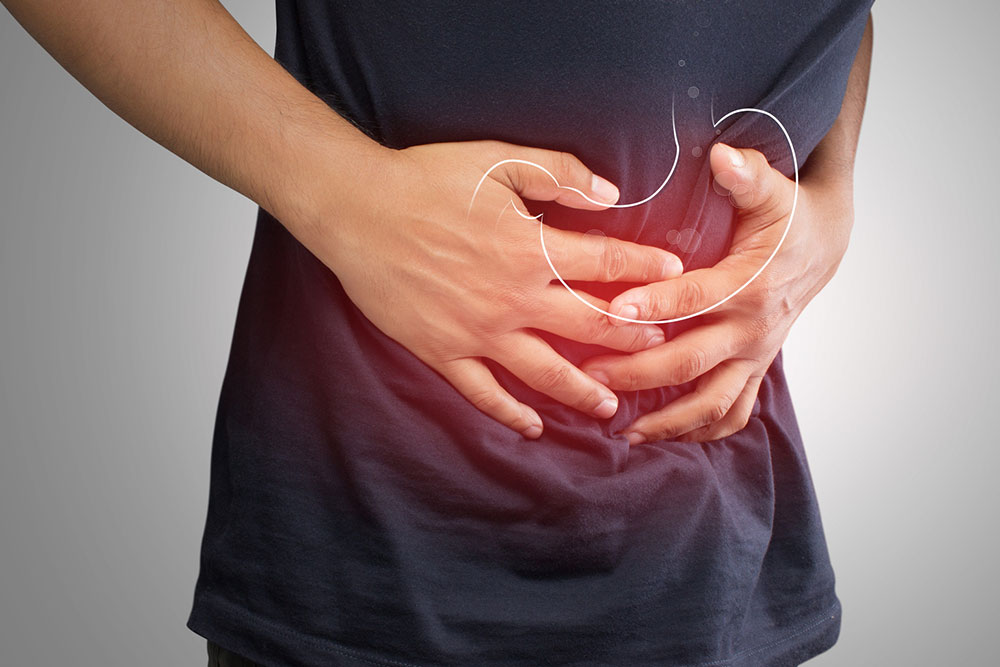
12 early symptoms of gastric cancer
Gastric cancer, also known as stomach cancer, is a severe health condition that silently develops within the stomach lining, often without noticeable symptoms in its early stages. This makes early detection and diagnosis challenging, as the disease is frequently diagnosed at an advanced stage with limited treatment options. However, understanding the early warning signs and symptoms associated with gastric cancer can be crucial for early intervention and improved prognosis. Let’s look at some of them.
Persistent indigestion
One of gastric cancer’s earliest and most common symptoms is persistent indigestion or dyspepsia. If one frequently experiences discomfort or pain in the upper abdomen, accompanied by bloating, heartburn, or a feeling of fullness even after consuming small meals, it could be a sign that something is amiss. While indigestion is often attributed to food choices or stress, it should not be ignored if it persists for weeks or months.
Swelling or enlargement of the abdomen region
In some cases, gastric cancer can cause the stomach to enlarge or swell due to the growth of the tumor. This enlargement may lead to a visible and palpable mass in the abdominal area. So, if one notices unusual swelling or enlargement of the abdomen that cannot be attributed to bloating, it is essential to seek medical attention promptly.
Although this symptom may be less common than others, it can still indicate gastric cancer.
Abdominal pain
Chronic or recurring abdominal pain is another potential symptom of gastric cancer. This pain is often described as a gnawing or burning sensation in the upper abdomen, which may come and go or persist over time. Even though there are many causes of abdominal pain, persistent discomfort should prompt a medical evaluation to rule out all underlying conditions.
Nausea and vomiting
Gastric cancer can lead to nausea and vomiting, particularly after meals. These symptoms can occur due to the tumor’s interference with the digestive process. If one is frequently nauseated or vomiting without an apparent cause, it’s essential to consult a healthcare provider.
Loss of appetite
A sudden loss of appetite, also known as anorexia, can be an early sign of gastric cancer. Individuals with stomach cancer may experience a reduced desire to eat, even when they haven’t eaten. This can be attributed to the tumor, which can release certain hormones that make one feel full.
Persistent fatigue
Persistent fatigue or weakness that doesn’t improve with rest is another potential symptom of gastric cancer. The cancer’s presence can lead to anemia, which can cause fatigue due to a decrease in red blood cells. So, if one experiences unusual tiredness for an extended period, seeking medical advice is essential.
Difficulty swallowing
Dysphagia, or difficulty swallowing, may also indicate gastric cancer. Here, the tumor may obstruct the passage of food from the esophagus to the stomach, causing discomfort and difficulty swallowing, especially with solid foods. Even though this symptom is more common in the later stages of the disease, it’s crucial to report any persistent swallowing difficulties to a healthcare professional.
Blood in stool or vomit
Gastric cancer can lead to gastrointestinal bleeding, manifesting as blood in the stool or vomit. The blood may appear bright red or dark and tarry, depending on its location in the digestive tract. If one notices any signs of blood in their stool or vomit, seeking immediate medical attention is essential. This is because it can seriously indicate gastric cancer or another gastrointestinal issue.
Frequent burping
Excessive belching or burping, particularly when accompanied by other symptoms like indigestion or abdominal discomfort, may be an early symptom of gastric cancer. While burping is common, persistent and unexplained burping should not be overlooked.
Feeling full quickly
If one feels full or satiated fast after meals, it could be a symptom of gastric cancer. This sensation, known as early satiety, can occur because the tumor affects the stomach’s capacity to hold food. Even a small meal may make the patient feel overly full. One must remember that this can lead to decreased food intake over time.
Frequent hiccups
Persistent hiccups can be an uncommon but potential symptom of gastric cancer. Hiccups, mainly when they occur more often than usual and persist for an extended period, can sometimes be associated with irritation or pressure on the diaphragm. A growing stomach tumor can cause this. So, while occasional hiccups are normal, if one notices a sudden and persistent increase in frequency, it’s advisable to consult a healthcare professional.
Unexplained iron deficiency
Iron deficiency anemia occurs due to insufficient iron levels and a shortage of red blood cells. In some cases, gastric cancer can lead to chronic yet unnoticeable stomach or upper gastrointestinal tract bleeding. This can result in anemia over time. So, if one experiences symptoms such as fatigue, weakness, pale skin, shortness of breath, and unexplained iron deficiency anemia, it could be a sign of an underlying issue like gastric cancer.
Gastric cancer is an intimidating disease that often remains asymptomatic in its early stages, making it challenging to diagnose promptly. However, being aware of the early symptoms of gastric cancer can help individuals and healthcare professionals recognize potential warning signs and initiate timely investigations. Early detection and intervention are paramount in improving gastric cancer’s prognosis and treatment options. So, if one experiences these symptoms for an extended period, consultation with a certified healthcare provider is recommended for a thorough evaluation. Joining support groups and getting palliative care also significantly helps manage the condition. Nurses and doctors provide every support one may need during this time. Nevertheless, it’s important to remember that many of these symptoms are non-specific and may be caused by various other conditions. Hence, it is advisable to talk to specialists and get timely checkups.


